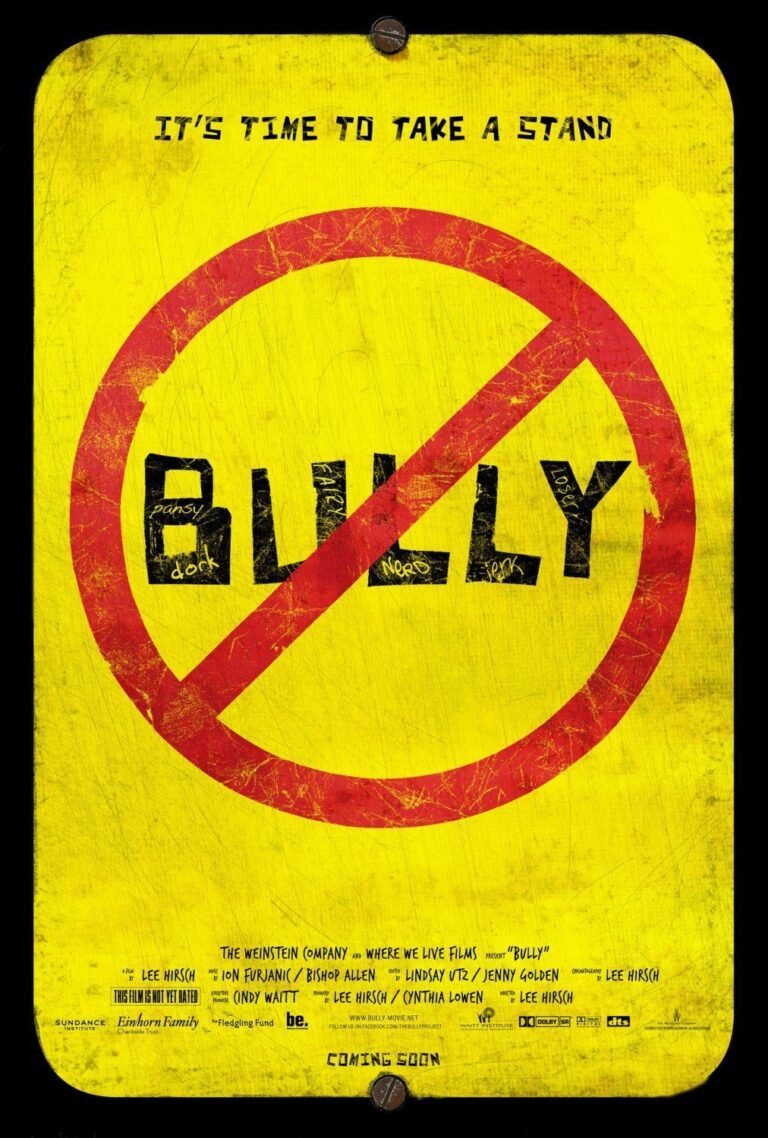 There’s a moment during Lee Hirsch’s Bully where the physical abuse directed at 12-year-old Alex has become severe enough that the filmmakers elect to show the disturbing footage to the boy’s parents, sparking a conversation during which Alex’s mother advises him that his only relationship with these other children is that he allows them to mistreat him. The boy’s heartbreaking reply? “If you say these people aren’t my friends, then what friends do I have?”
There’s a moment during Lee Hirsch’s Bully where the physical abuse directed at 12-year-old Alex has become severe enough that the filmmakers elect to show the disturbing footage to the boy’s parents, sparking a conversation during which Alex’s mother advises him that his only relationship with these other children is that he allows them to mistreat him. The boy’s heartbreaking reply? “If you say these people aren’t my friends, then what friends do I have?”
Alex, whose daily routine often includes being punched, strangled, or stabbed with pencils, is not only reluctant to disclose the ongoing torment, he actually goes so far as to defend the actions as “just messing around.” It’s a response that should feel familiar to a large sector of today’s youth, as many children find themselves willing to accept ongoing ridicule and mistreatment just to have some, any, interaction with their peers.
[pullquote_left]Alex’s daily routine often includes being punched, strangled, or stabbed with pencils.[/pullquote_left]Unfortunately, there comes a time when enough is enough, as is the case with 14-year-old Ja’Meya. After being continually threatened and castigated on the school bus, she responds by pulling out her mother’s handgun and brandishing it at her detractors – an act which leads to her incarceration for 45 counts of felony kidnapping and attempted aggravated assault, while the reasons for her action are swept under the rug by the local sheriff, who says that nothing can justify the crime she has committed.
It’s one of the many examples Bully uses to showcase just how incredibly out of touch adults seem to be with the never-ending issue of bullying. Throughout the film, we see school administrators and law enforcement officials attempting to explain away the problem by saying “kids will be kids” or “they’re just cruel at that age,” or completely denying that a problem exists, such as when an assistant principal tells Alex’s parents that the other kids on his bus are “as good as gold.”
Make no mistake: bullying is a very large, very real problem in today’s society, and failure to address the issue can often have dire consequences. The parents of 11-year-old Ty Smalley have been forced to deal with the most painful loss imaginable after their son elected to take his own life, rather than return to the school where he didn’t quite fit in. David Long, whose 17-year-old son also committed suicide after enduring years of torment, has worked tirelessly to spread awareness in hopes that other families will never have to experience such tragedy.
[pullquote_right]Throughout the film, school administrators and law enforcement officials attempt to explain away the problem.[/pullquote_right]After the MPAA slapped Bully with an R rating for language, the Weinstein Company lobbied to have the film’s rating reduced to PG-13, but despite overwhelming support from thousands of petitioners, including several members of Congress, the MPAA upheld the rating. The filmmakers were eventually able to secure a PG-13 rating, but only after making a few edits. It’s a special kind of hypocrisy when an organization designed to protect children from objectionable content will enable minors to see films that glorify violence and sexuality, but will endeavor to deny those same minors access to a film that could have a life-changing impact, based solely on six uses of the word “fuck.”
Just like many of the adults featured in Hirsch’s riveting documentary, the MPAA seems more concerned with keeping up appearances than addressing the problem. While the edits may have robbed Bully of its authenticity, the message is still very much intact. In a world where too many children fell alone and defenseless, we all have the ability to make a change and to stand for the silent.


